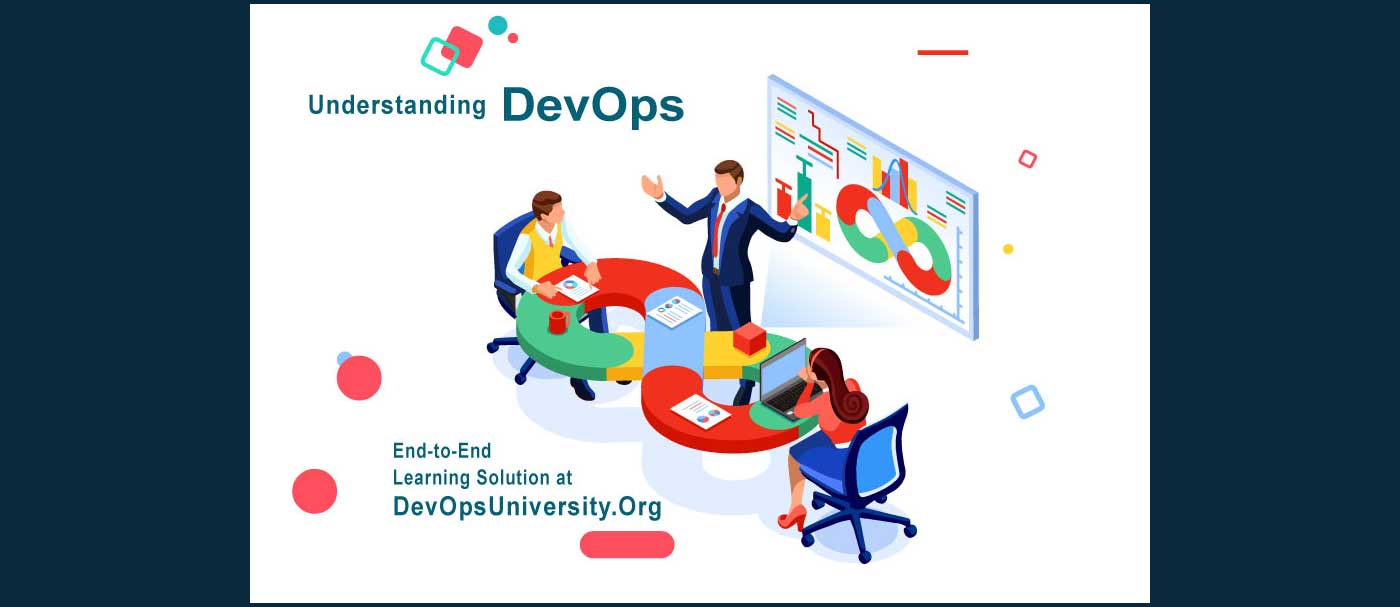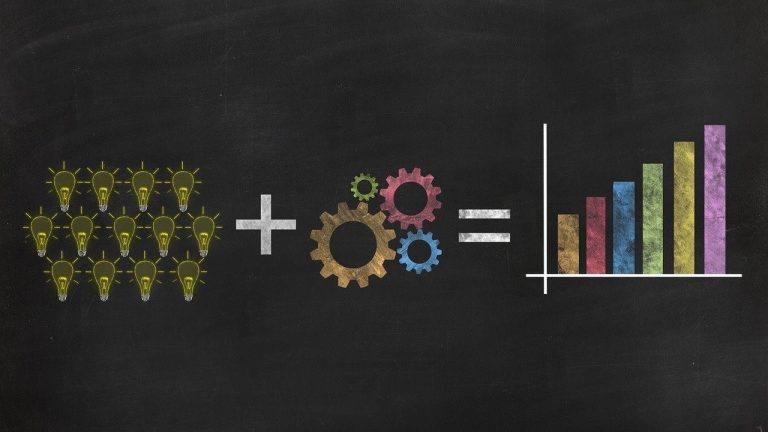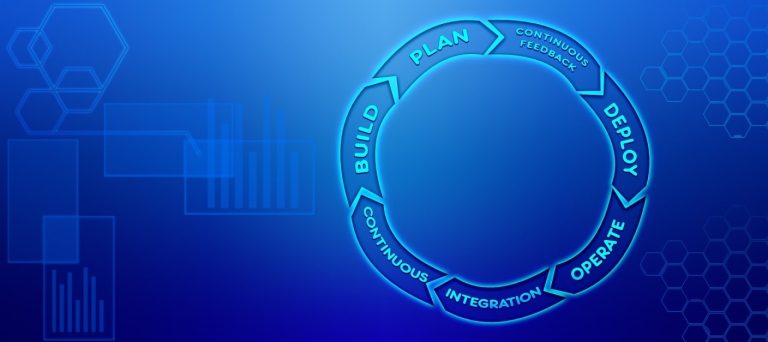
Being skilled in DevOps does not mean your role or job opportunity becomes limited to a particular area, these skills are like paint in the broad canvas of DevOps and you are the paintbrush! There are no certain key roles for any organization that adapts DevOps, the main motto is Continuous Delivery and the people included in the cycle that make this happen. The initiation, development, reorienting, organizing, production and maintenance are all part of this cycle.
A little backstory about DevOps
DevOps – Development + Operations is a set of practices that combines software development and information-technology operations which aims to shorten the systems development life cycle and provide continuous delivery with high software quality. Now to think that these ‘set of practices’ would have limited roles and fixed skills is a sign of limited thinking. DevOps is a smorgasbord in the software field and each skill and each role contributes to better execution and better delivery and every organization and person equipped with the power of DevOps must realize this.
Why roles are important?
Although basing the smooth functioning of DevOps to a handful of titles is not feasible but knowing and assigning certain roles and tasks to different people can help make the best use of their particular set of skills and give a golden outcome out of the cycle. As an organization you must know the skill set of your team and as a DevOps learner you must know yourself and where you stand when you are or want to be a part of such a team. If you are new to DevOps start here.
The resume of a DevOps-focused engineer will show a breadth of knowledge while simultaneously explaining their specialized expertise in one or two areas. There isn’t a single way to “do” DevOps. There isn’t a tool or a process that works for every team. At the core of DevOps, you’re simply improving the way your team works throughout the software development lifecycle and incident management process. Every person in a DevOps-centric organization should be highly focused on developing new features and services quickly without sacrificing reliability or customer experience.
DevOps is quickly replacing the traditional IT structures and it would soon be the major working criteria in most companies in the near future.
8 Roles and their Responsibilities in DevOps cycle.

Based on skills and the need of the team and cycle, unlike any traditional organization the roles are not limited but instead focus on expansion.
- DevOps Evangelist
All the enthusiasm and the drive one might have for DevOps can be utilized in this role. The Evangelist is an agent of change. The DevOps evangelist ensures buy-in from development and operational teams, identifies the key roles to support DevOps delivery methods, and makes sure IT professionals are trained and empowered to make those changes. This is the role of a leader in the DevOps movement and must be able to remove fear of failure from the organization. This is where your leadership and DevOps skills must both work in sync.
- DevOps Project Manager
The role of the DevOps Project Manager is the person responsible for accomplishing the stated project objectives. They work to address management and coordination of the product. This role establishes and manages the project plan. They’re focused not just on creating, but also maintaining the end-to-end application delivery tool chain.
- DevOps Developer
The Developer is the foundation of the DevOps model and developer creates what the customer wants. The developers are responsible not only for turning new requirements into code, but unit testing, deployment, and ongoing monitoring as well.
DevOps works in close extensive collaboration between the creation (development) and operation groups. Hence these two groups and their roles must comingle smoothly - The DevOps Architect
A DevOps Architect leads the design and implementation of enterprise applications. DevOps Architects are responsible for building platforms and frameworks to create consistent, verifiable and automatic management of application and infrastructure between non-production and production environments.
In certain organizations, where automation structures are extensive and need separate maintenance, an Automation Architect is need specifically for this particular set of responsibilities . Automation architects have a comprehensive automation role across DevOps tools and cloud platforms. Sometimes called integration specialists, automation architects analyze, design, and implement strategies for continuous deployments while ensuring high availability on production and pre-production systems. - DevOps Executive
DevOps Executives are responsible for successful utilization and application of DevOps knowhow within their organizations. They are key players for DevOps teams to enable cultural shift of doing and thinking in DevOps way. If you want to step up for this role you must have the ability to think and work in the ‘DevOps way’ and must be powered with people skills as they must possess the ability to constructively influence teams and management to get things done.
- DevOps Quality Engineer (Quality Assurance
Engineer)
The role is in the name here,
In the DevOps approach, testers and developers play equally important roles. The boundaries of job responsibilities between a developer and tester become blurred in DevOps. QA (Quality Assurance) ties together development and operations and enables them to collaborate to have software and applications up & running. In terms of code development, the QA team pushes the new development code into production and DevOps facilitates to ensure a seamless deployment of infrastructure and tools.DevOps Quality Assurance Engineers continuously follow up and review Test Execution Phases to ensure that implemented Test Cases realize their goals. They raise and review defects, and they make sure that there is no compromise from planned Product Features.
- DevOps Operations Engineer
The Operations Engineer is in charge of the infrastructure and the technology behind their products. Monitoring, maintaining and deploying the state-of-the-art software. All of these come under the responsibility of being an Operations Engineer. The Operations Engineer is literally ‘in the field’ and overlooks and takes care of the operations side of the DevOps cycle. They deploy and maintain Network Infrastructures and Servers at Data Centers.
- DevOps Information Security Engineer
To ignore Information Security as an afterthought in today’s critical and unstable world would be to invite trouble. It is essential to have an up-to-date security system which can shake off threats before they reach you. DevOps Information Security Engineers are responsible for supporting the users of the infrastructure they develop, and the first line of defense is protecting the cloud against hackers and viruses. They do this with code, of course, building secure software from the start.
DevOps organizations have DevOps Information Security Engineers working side by side with DevOps Developers and DevOps Operations Engineers because security is mandatory from the foundation itself, building a vulnerable structure and then covering it up for the sake of security will turn out to be a weak immune system for the organization.
Skill is the
unified force of experience, intellect and passion in
their operation
~John Ruskin
There many more roles which balance and ensure smooth working of a DevOps cycle and post-delivery processes. Right now we have covered these to give you an idea what it is like and responsibilities some of the roles carry.
So whether you are an organization seeking to redefine the
roles and redesigning your teams for better efficiency and
delivery while making use of the strengths of each
individual or you are a professional stepping into or
enhancing your DevOps skills and recharting your career path
it is good to study each role and check in with your skill
set to know where you stand and what role would you like to
take up in the future.
DevOps won’t be a one-hit wonder in the world of IT, it
would continue to expand laying its roots and increasing its
value due to its nature of a crucial necessity.
So to supplement your expertise we would recommend to check these courses



 Workshop
on Certified DevOps Foundation
Workshop
on Certified DevOps Foundation Workshop
on Certified DevOps Professional
Workshop
on Certified DevOps Professional Get
DevOps Certified
Get
DevOps Certified
Nicely explained. Thank you.
Very well summed up about major roles in DevOps, Thank you for explaining nicely.